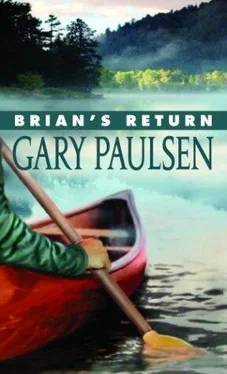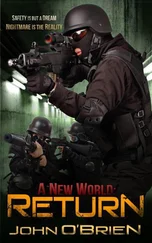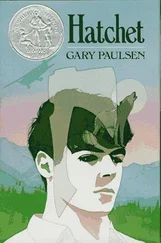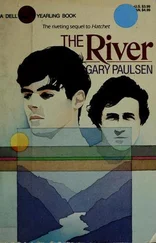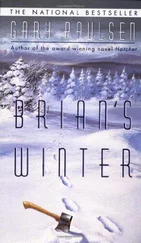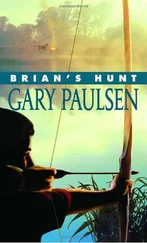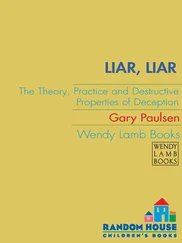It was a long night.
Dear Caleb: I read some Shakespeare today. I think it changed my life.
It was a repair day, both for equipment and for himself.
Dawn was wet and dreary and it took him a full hour to find some dry wood and leaves and get a decent fire going — all the time castigating himself. Had he forgotten everything? He hadn’t made a secure camp, hadn’t dug a rain gutter around the tent, hadn’t brought in wood so he’d have dry fire starter in the morning.
He limped through the woods around the campsite until he found a dead birch log with the bark still intact. Birchbark was nearly waterproof — it was what Native Americans used for canoes — and beneath the bark he broke off slivers of dry wood. He took a double armful of bark and slivers back to the campsite and after three attempts — he should have needed only one match, he told himself — he at last got a sputtering flame going.
Once the bark caught it went like paper dipped in kerosene and the wood caught and when the flames were going well he put on smaller pieces of the wet firewood. The flames dried the wood and started it burning and in another half hour he had a good blaze going.
He took a moment then to examine his leg. There was a clean puncture wound not more than half an inch deep and he took some disinfectant from the first-aid kit and dabbed it on the hole, put a Band-Aid on it and then went back to work.
The wind had dropped and the rain had eased to a few sprinkles now and then. He saw clear holes in the clouds. He spread the gear to dry, tying it to limbs with nylon cord. His sleeping bag was soaked through and the tent was a sloppy mess. He had to stay put so he set the tent back up, this time pegging it down and using the small shovel to dig a drainage ditch around the sides with a runoff ditch leading down to the lake.
The wind had tangled the packs in the tree limbs but they were still intact, and after some effort Brian untangled them and lowered them to the ground.
Again he dried arrows and the quiver and checked his bow. Then he launched the canoe and took about fifteen minutes to catch six good-size bluegills. He cleaned the fish, put them on to boil with a teaspoon or so of salt, put rice in the other pan and then suddenly found that all the work was done.
The sun was out — he could actually see steam coming up from his sleeping bag as it dried — and he lay back on the ground by the fire and went over what had happened. His leg throbbed in time with his thoughts as he learned yet again: Never assume anything, expect the unexpected, be ready for everything all the time.
And finally, no matter what he thought would happen, nature would do what it wanted to do. He had to be part of it, part of what it was really like, not what he or some other person thought it should be like.
He gathered wood for the night and spread it in the sun to dry, took the meat off the fish and mixed it with the rice and set it aside to cool — he sometimes liked to eat the rice cold — and lay in the sun nude (his shorts drying on a limb) and let the smoke from the fire keep the mosquitos off while he dozed, catching up on sleep he’d lost in the rain the night before.
He slept solidly for more than four hours. The fire was nearly out when he awakened and he put more wood on the coals and got them going again.
It was midafternoon and he ate the rice and fish, then made tea and had a cup with a sugar cube for dessert.
By evening his bag was dry. He put it in the tent, put on a T-shirt because he was feeling a bit sunburned, and his hand bumped one of the Shakespeare volumes.
‘‘So I’ll try reading it. .’’
He had been exposed to Shakespeare in school, briefly, and had not paid much attention. The play they had read was Romeo and Juliet and he knew it was about young people so he tried it again now.
He stood on the shore and read aloud, and felt silly at first. But because he liked Caleb and trusted him he kept going, staggering on until he came to the verse in act 2 where Juliet says:
O Romeo, Romeo, wherefore art thou Romeo?
Deny thy father and refuse thy name,
Or, if thou wilt not, be but sworn my love,
And I’ll no longer be a Capulet.
Here a strange thing happened to Brian. Whenever he’d heard this part before — on television, in school — he’d thought she was looking for Romeo, wondering where he was, calling for him. But something brought the words, the meaning, to him as he stood there in the afternoon sun, reading it aloud out onto the lake, and he knew that was wrong, knew that she was instead calling on Romeo, asking him why he was a member of the wrong family, the Montagues, and if only he weren’t. .
And a few lines later he read Juliet saying:
What’s in a name? That which we call a rose
By any other word would smell as sweet.
And Brian knew. It was as if his whole world had suddenly opened. He knew what Shakespeare was trying to tell him. Of Juliet’s love for Romeo, of her torment and despair over the agony of the fight between the two families.
This man had written of these things hundreds of years before Brian was born, in a world so different from Brian’s it might be on another planet, and Brian knew . .
It shook him, standing there on the side of a lake in the northern wilderness reading a love story written more than three hundred years earlier, to know how they felt, how they hurt.
He closed the book and sat down on the grass, his legs crossed, the sun heading into evening, and thought of all the time he had wasted not knowing Shakespeare, and a tear slid down his cheek, a tear for Juliet and Romeo, a tear for Shakespeare, who he wished were still alive, a tear for his own loss and a tear for the beauty of knowing sadness. .
Dear Caleb: It gets more and more beautiful. I think most of the city is leaving me.
He was not sure what, if anything, awakened him. Probably the fact that he had slept so hard during the day. Whatever the reason, in the dead middle of the night his eyes suddenly snapped open and he sat up, listening with his mouth open, breathing in shallow pulls to not make noise.
Nothing.
He leaned forward and unzipped the tent and looked out. Still nothing, at least nothing to hear. But the sight that met his eyes made him hold his breath.
The sky was clear, filled with stars, and the moon was half full and laid a silver streak across the lake — a white road that came across the water and called to him with such intensity that he closed the tent and moved to the canoe, turned it over and slid it out onto the water.
The night was cool enough that the mosquitos stayed down. He stroked once with the paddle and the canoe slid out and away from the bank into the silver reflection of the moon out on the water.
Another pull, another slide across the still water, moving through liquid silver. A loon called. It seemed to come from somewhere to the left but the sound moved around until it filled the lake, mixed somehow with the moonlight and became almost visible. It hung there, the sound he could see in the moonlight, for half a minute; then the loon called again, or another answered it, and suddenly — close, on the far edge of the lake, only a hundred yards away — a wolf howled.
Long, sweet, and sad and happy and frightening and joyful all at once, a keening howl that started high and dropped low and ended almost hoarse.
The hair went up on the back of Brian’s neck and he took a deep breath and answered the howl, trying to match the tones of it, starting high the same way and bringing it down as low as he could until it trailed off.
Читать дальше
